Text
aww nasa has a page for space technology terms you can use in science fiction
nerds
198K notes
·
View notes
Text
Todays biggest clowns is the state of Germany for going through to shut down all their nuclear powerplants by 2022 and playing right into atomphobia and what the coal and natural gas giants want
25K notes
·
View notes
Text
People's problems now become tangible things when left unsolved and as a result, troubleshooting became a legitimate job.
3K notes
·
View notes
Text
Hurt/Comfort is such an interesting thing. It’s basically an entire genre of fanfiction. I’d argue it satisfies a very basic, vital need–the same way that horror satisfies the basic need to be scared in a safe, controllable space.
And yet it doesn’t really have an equivalent outside of fan culture. "Tearjerkers” can sometimes come close, they’re probably the closest thing to a mainstream hurt/comfort genre that there is. But those types of books and movies don’t usually focus on the “comfort” aspect in the same way, and don’t make use of tension and release.
I think every good hurt/comfort fic makes use of tension and release just as horror does, whether the writer is consciously aware of it or not. Though of course the tension and release in h/c comes from different sources than in horror. Instead of anticipating something frightening, you anticipate the intimacy and/or validation that comes from the “comfort” part you know is eventually coming. That’s what provides release of the tension built up during the “hurt” scenes.
I could write a goddamned essay about this it’s so fascinating.
49K notes
·
View notes
Text
Writing the Perfect Query Letter
The point of a query letter is to sell your story.
Writing your query letter, your goal is to make the reader want to pick up the book. That is the entire purpose. We’ve all recommended books to friends before. It’s exactly that, except now that book is yours and the stakes are high. A query letter is, above all, persuasive. While writing your query letter, make sure you draw your reader into your story with every word.
A query letter is not a creative letter; it’s a business proposition.
Writing a query letter, don’t think of yourself as a writer, especially not of this particular story. You’ll need that degree of separation from your work for a good query. An agent/author relationship is foremost a business relationship. You’re pitching a product to someone whose job it is to sell your product (the agent) to someone whose job it is to sell your product (the editor) to someone you want to buy your product (the reader). This means that by querying your manuscript, you’re requesting a place in an industry. As such, you should follow some industry standards:
Use business letter formatting. 12 point font. Single spaced. Left alignment. No indentations. A space between paragraphs.
Don’t be familiar. This is a business letter. A formal letter. Unless you already have some sort of a relationship with the person you’re querying–if you’ve met at an event or corresponded in some other regard–write like you’re writing to a potential business associate.
Write the letter as yourself. Don’t write as your character. Don’t write as your narrator. Don’t write as the historian who discovered your story 1,000 years into the future. It’s a risk that rarely pays off. On that point…
Don’t be creative with the form of your query. Save the creativity for your manuscript. Don’t quote a section in your opening lines. Don’t include a box of chocolates with it when you mail it off. Don’t be gimmicky. If you resort to a gimmick, the agent is going to wonder if it’s because you don’t know how this works or your story isn’t strong enough to stand on it’s own. Play by the rules. Trust your story.
Keep it short. 250-400 words. Remember your goal: to get the agent to pick up the first chapter. Agents can receive hundreds of queries in a week. They don’t have time for wasted words. They won’t wait for you to get to your point. Say what you have to say as quickly as possible.
Writing Your Query:
You don’t have long to tell your story. Just a page. This means you can’t include much more than the information that is absolutely vital to your story and the querying process. I’ve outlined the information, and separated it into paragraphs. You don’t have to divide it the way I’ve set out here, but these are the general lumps of Query Stuff.
Each point I’ve bulleted should only be a sentence or two long. If your reader wants to know more, they’ll read the first chapters and request the manuscript.
The Opening Lines: The Formalities
Address the agent. As this is a business letter, start with something akin to “Dear Mr./Ms. [First Name, Last Name] or [Last Name]:” Ex. Dear Mr. Tolkien:
State your intent. In my research I’ve found this unnecessary, but if you choose to do so you can say something along the lines of: “I’m submitting for your consideration my completed novel, [TITLE].”
The First Paragraph: The Introduction
Introduce your story as cleanly as possible. It should be minimal, yet evocative. Specific to your story, but skimming the surface of it. The more set-up you give, the more complicated you’ll make things for yourself.
The set up. What was life like for the character when the story began? Where does the story take place?
The inciting incident. The “but when…” What set the ball rolling? This can be in the same sentence as the setup.
The combination of the set up and inciting incident should work as a sort of tagline.
Protagonist motivation. What does your protagonist want? What is it about the inciting incident that motivates the protagonist to action?
The Second Paragraph: The Conflict
I’ve made this a separate paragraph because shorter paragraphs make a page more inviting for a reader, but it’s your call. In this paragraph, you don’t want to summarise the entire book; you want to show your ability to weave a compelling story. It should have energy. It should tell the reader just enough to get them excited.
The rising action. What are a few key events that raise the stakes in your manuscript? Take a few sentences to lay out the most important events leading to the climax of your story.
The central conflict. What is the main obstacle your protagonist will face to achieve their goal? Lay out exactly what your protagonist’s biggest problem is.
The hook. The line or question that will make your reader want to read more. If you’d like, you can make it it’s own paragraph.
The Third Paragraph: The Details
Some people make this their first paragraph, but I’ve decided to put this after the introduction to the story. These are the formal details of your story, where it gets very Industry.
The title. You might have said it earlier, but it won’t hurt to say it again here.
The word count, genre, & age range. All necessary industry information. Round your word count to the nearest 1,000.
Comp titles. What books might this person have read that are similar to your own, either in tone/setting/story? This can give your reader a sense of the potential audience for your story. You only want to include two.
If you really want, you can choose to personalise the submission here and say why you’ve queried this particular agent. If you only want to show that you’ve done your research, you should have already gotten this point across clearly with the summary, age range, and genre. But, if you really love this agent, if you follow their blog or twitter or love some of their authors, it won’t hurt to say so.
The Fourth Paragraph: The Author
The last paragraph is usually set aside for a few short lines about yourself. This should only include information relevant to writing this manuscript. Examples of biographical details you might want to include:
Awards
Degrees
Writing conferences/workshops attended
Expertise related to the content of the book
Where you lived/have lived (if it matters)
You should be able to summarise this paragraph with: here is why you should trust me to tell this story.
You can also include a line about what you: are currently writing, enjoy writing, or have written. Let the agent get to know you as a writer and reader outside of this one story. (Especially if you don’t have many manuscript-related accolades/experience.)
The Closing Line: The Niceties
Thank the agent for taking the time to read your query. A small but important consideration.
Tips
Highlight your writing ability with narrative voice. If your story is funny, make sure your query reflects that. If the writing is lyrical, your query should be too. You don’t want to drown the agent in your writing style, but you should splash them a bit.
DON’T INCLUDE THEMES. Don’t say this is a story about “friendship and the power or love,” or “children will relate to this story of bullying.” A query letter isn’t a literature class. Don’t analyse your manuscript for your reader. Let the story speak for itself.
Use active language. Don’t use phrases like “this story is about” or “the main character is.” Again, let the plot and the character’s actions speak for themselves.
Only name a few characters and locations outright. If you’re querying Harry Potter, you’ll want to use Harry’s name in the query, but Aunt Petunia and Uncle Dursley can be “his cruel relatives.” Hermione and Ron can be “his friends.” Even Hogwarts can be a “school for people with magical abilities.” Refer to things by their function in the manuscript and keep your query simple and easy to follow. The more names, locations, and special terms in your query, the more confusing it will be.
Don’t sing your own praises. Don’t say that your mom loves your book, or that your little cousins devoured it. Don’t compare it to Harry Potter or any other best-seller. Don’t say you think the book will sell well. The agent won’t believe you.
It’s okay if it takes you days and days to write your query. It should take days to write. Whether or not the agent even looks at your first chapter will depend entirely on this single page. You can write the novel of the century, but no one will look at it unless your query sells it.
Have someone else look over your query before you send it out. Share it with the smartest person you know. Share it with your old English teacher. Share it on a writing website, like r/writers. Have them judge it on clarity and quality. Ask them where it can be trimmed. Ask them what they think the strongest sentence is. Ask what the weakest sentence is. Have them check for typos.
Triple-check you’ve spelt the agent’s name correctly. Agents are trying to get through their inbox. If they find one good reason to move past your query, they will. Don’t give it to them in the first line.
Triple-check the agent’s submission requirements. Getting these wrong is another way to get your query moved directly to the reject pile.
Let them know if there’s a potential for sequels. If you’re writing a trilogy, don’t try to sell all three books at once. Use this query letter to sell the first book of the series only. Then, let the agent know that “[Your Title] has the potential for two sequels continuing [Your Protagonist]’s story.” An agent wants you to have more than one book in your arsenal, but this is a short letter. There’s only room for the one book in it.
And one last tip? Your query doesn’t have to be perfect. Following this advice will help you draw the essential story out of a manuscript and make it look like you know what you’re doing, but many queries break these “rules” and still get full manuscript requests. As long as there’s something in the pitch that is enough to make the agent want to take a look at the manuscript itself, the query is doing its job.
Remember: you’re recommending a book. That’s all. It just happens to be your book.
Sources.
Writing a Six Sentence Synopsis
23 Successful Query Letters
How to Write a Query Letter
How to Write the Perfect Query- Agent Advice
The Anatomy of a Query Letter (Podcast episode: 1hr)
The Narrative Breakdown (Podcast episode: 35min)
Query Generator
Using the research I did for this post (plus a whole bunch more), I created a website to help you identify important aspects of your story and gather them into a standard query structure. Check it out at: https://www.querylettergenerator.com/
9K notes
·
View notes
Photo

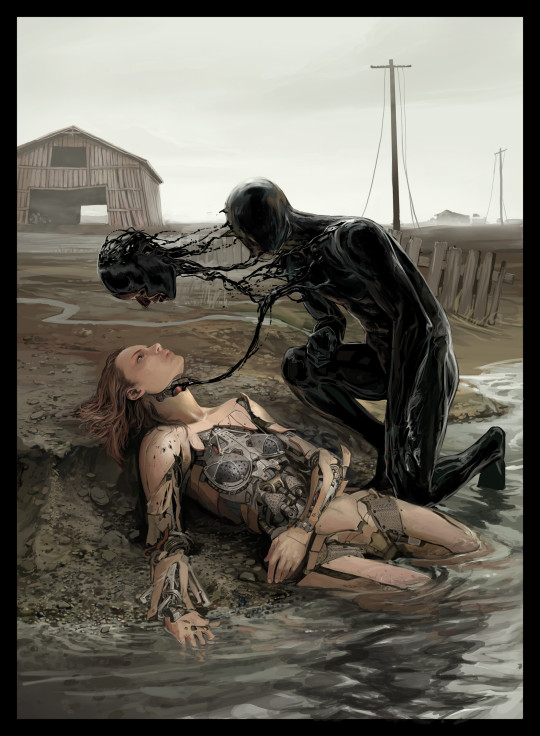
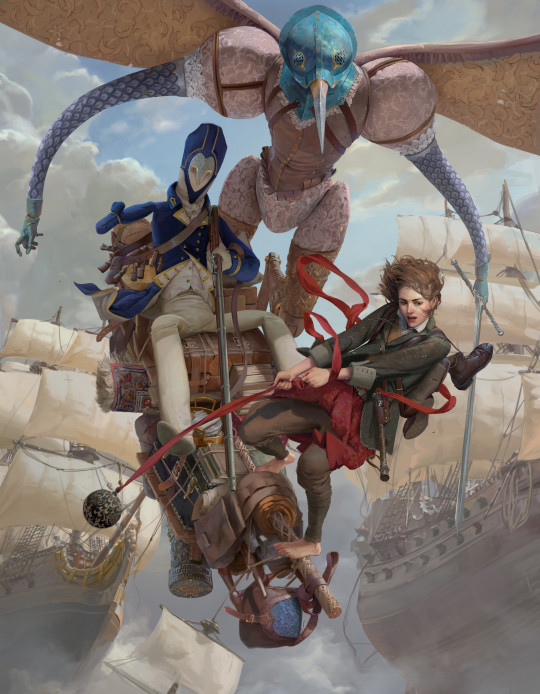


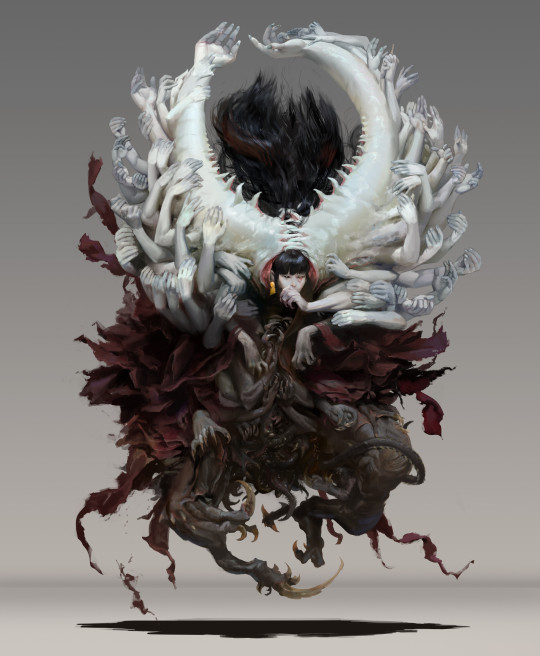
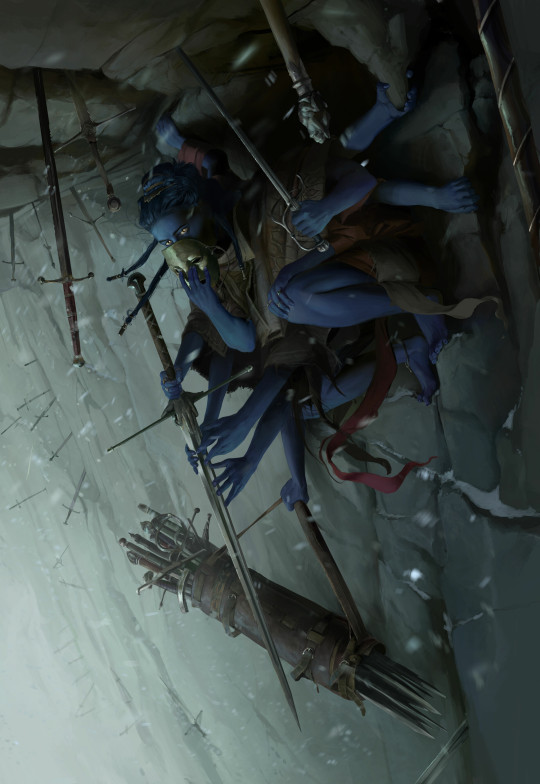
Illustrator Michael MacRae
Twitter: @artwoonz_ Uzaktan eğitim İstanbul
980 notes
·
View notes
Photo

I believe in free education, one that’s available to everyone; no matter their race, gender, age, wealth, etc… This masterpost was created for every knowledge hungry individual out there. I hope it will serve you well. Enjoy!
FREE ONLINE COURSES (here are listed websites that provide huge variety of courses)
Alison
Coursera
FutureLearn
open2study
Khan Academy
edX
P2P U
Academic Earth
iversity
Stanford Online
MIT Open Courseware
Open Yale Courses
BBC Learning
OpenLearn
Carnegie Mellon University OLI
University of Reddit
Saylor
IDEAS, INSPIRATION & NEWS (websites which deliver educational content meant to entertain you and stimulate your brain)
TED
FORA
Big Think
99u
BBC Future
Seriously Amazing
How Stuff Works
Discovery News
National Geographic
Science News
Popular Science
IFLScience
YouTube Edu
NewScientist
DIY & HOW-TO’S (Don’t know how to do that? Want to learn how to do it yourself? Here are some great websites.)
wikiHow
Wonder How To
instructables
eHow
Howcast
MAKE
Do it yourself
FREE TEXTBOOKS & E-BOOKS
OpenStax CNX
Open Textbooks
Bookboon
Textbook Revolution
E-books Directory
FullBooks
Books Should Be Free
Classic Reader
Read Print
Project Gutenberg
AudioBooks For Free
LibriVox
Poem Hunter
Bartleby
MIT Classics
Many Books
Open Textbooks BCcampus
Open Textbook Library
WikiBooks
SCIENTIFIC ARTICLES & JOURNALS
Directory of Open Access Journals
Scitable
PLOS
Wiley Open Access
Springer Open
Oxford Open
Elsevier Open Access
ArXiv
Open Access Library
LEARN:
1. LANGUAGES
Duolingo
BBC Languages
Learn A Language
101languages
Memrise
Livemocha
Foreign Services Institute
My Languages
Surface Languages
Lingualia
OmniGlot
OpenCulture’s Language links
2. COMPUTER SCIENCE & PROGRAMMING
Codecademy
Programmr
GA Dash
CodeHS
w3schools
Code Avengers
Codelearn
The Code Player
Code School
Code.org
Programming Motherf*?$%#
Bento
Bucky’s room
WiBit
Learn Code the Hard Way
Mozilla Developer Network
Microsoft Virtual Academy
3. YOGA & MEDITATION
Learning Yoga
Learn Meditation
Yome
Free Meditation
Online Meditation
Do Yoga With Me
Yoga Learning Center
4. PHOTOGRAPHY & FILMMAKING
Exposure Guide
The Bastards Book of Photography
Cambridge in Color
Best Photo Lessons
Photography Course
Production Now
nyvs
Learn About Film
Film School Online
5. DRAWING & PAINTING
Enliighten
Ctrl+Paint
ArtGraphica
Google Cultural Institute
Drawspace
DragoArt
WetCanvas
6. INSTRUMENTS & MUSIC THEORY
Music Theory
Teoria
Music Theory Videos
Furmanczyk Academy of Music
Dave Conservatoire
Petrucci Music Library
Justin Guitar
Guitar Lessons
Piano Lessons
Zebra Keys
Play Bass Now
7. OTHER UNCATEGORIZED SKILLS
Investopedia
The Chess Website
Chesscademy
Chess.com
Spreeder
ReadSpeeder
First Aid for Free
First Aid Web
NHS Choices
Wolfram Demonstrations Project
Please feel free to add more learning focused websites.
*There are a lot more learning websites out there, but I picked the ones that are, as far as I’m aware, completely free and in my opinion the best/ most useful.
532K notes
·
View notes
Text
Are These Filter Words Weakening Your Story?
After putting my writing on hold for several weeks, I decided to jump back in. I expected to find all sorts of problems with my story–inconsistencies in the plot, lack of transitions, poor characterization–the works. But what began to stick out to me was something to which I’d given little thought in writing.
Filter words.
What are Filter Words?
Actually, I didn’t even know these insidious creatures had a name until I started combing the internet for info.
Filter words are those that unnecessarily filter the reader’s experience through a character’s point of view. Dark Angel’s Blog says:
“Filtering” is when you place a character between the detail you want to present and the reader. The term was started by Janet Burroway in her book On Writing.
In terms of example, you should watch out for:
To see
To hear
To think
To touch
To wonder
To realize
To watch
To look
To seem
To feel (or feel like)
Can
To decide
To sound (or sound like)
To know
I’m being honest when I say my manuscript is filled with these words, and the majority of them need to be edited out.
What do Filter Words Look Like?
Let’s imagine a character in your novel is walking down a street during peak hour.
You might, for example, write:
Sarah felt a sinking feeling as she realized she’d forgotten her purse back at the cafe across the street. She saw cars filing past, their bumpers end-to-end. She heard the impatient honk of horns and wondered how she could quickly cross the busy road before someone took off with her bag. But the traffic seemed impenetrable, and she decided to run to the intersection at the end of the block.
Eliminating the bolded words removes the filters that distances us, the readers, from this character’s experience:
Sarah’s stomach sank. Her purse—she’d forgotten it back at the cafe across the street. Cars filed past, their bumpers end-to-end. Horns honked impatiently. Could she make it across the road before someone took off with her bag? She ran past the impenetrable stream of traffic, toward the intersection at the end of the block.
Are Filter Words Ever Acceptable?
Of course, there are usually exceptions to every rule.
Just because filter words tend to be weak doesn’t mean they never have a place in our writing. Sometimes they are helpful and even necessary.
Susan Dennard of Let The Words Flow writes that we should use filter words when they are critical to the meaning of the sentence.
If there’s no better way to phrase something than to use a filter word, then it’s probably okay to do so.
Want to know more?
Read these other helpful articles on filter words and more great writing tips:
Filter Words and Distancing Point of View
The Reasons Editors reject Manuscripts
Filter Those words and Strengthen Your Writing
44K notes
·
View notes
Text
writing ask game
made for novels, but can be used for fanfiction or other types of writing!
describe the plot in 1 sentence.
pick one sight, smell, sound, feel, and taste to describe the aesthetic of your novel.
which 3+ songs would make up a playlist for the novel?
what’s the time period and location in which the novel takes place?
is this a standalone or a part in a series?
are there any former titles you’ve considered but discarded?
how many times does the word ____ appear in the novel?
what’s the first line that comes up when you search _____?
what’s the first line of your novel?
what’s a line of dialogue you’re particularly proud of?
which line from the novel most represents it as a whole?
who are your character faceclaims?
sort your characters into harry potter houses!
which character’s name do you like the most?
describe each character’s daily outfit.
do any characters have distinctive birthmarks/scars?
pick a color to represent each character.
pick a font to represent each character.
which character most fits a character trope? which trope?
which character is the best writer? worst?
which character is the best liar? worst?
which character swears the most? least?
which character has the best handwriting? worst?
which character is most like you? least like you?
which character would you most like to be?
12K notes
·
View notes
Text




I found a company called “Frantic Meerkat” who makes journals whose sole purpose is to call me out
263K notes
·
View notes
Text
Do you like music?
Me neither. I only listen to podcasts, and the dark prophecies delivered to me by forgotten gods in the dead of night, and sometimes Oingo Boingo.
But you know what I do like?
• Supporting Disabled Artists
• Supporting Bisexual Artists
• Supporting Mentally Ill Artists
• The Inherent Homoeroticism of Country Music
• Faeries!
• Wrestling!
• Clowns!
• My good, good friend, award-winning polymath of stage and screen, Kate Nyx.

"Newt," you say, "You mean to tell me there's country-influenced-on-occasion-but-generally-too-genre-defying-to-really-classify folk pop music written by a mentally ill, disabled, queer woman that articulates trauma and the joy of recovery in sincere, brilliant, and sometimes silly ways?"
That's exactly what I mean to tell you! And it's available now on SPOTIFY, PANDORA, BANDCAMP, ITUNES, AND WHEREVER FINE MUSIC IS SOLD.
So, check it out! Support one of my oldest friends! Jam your guts out! Have a nice cry! You've earned it!
♡
Kate also does weekly music livestreams, and YouTube videos covering everything from makeup tutorials to making wrestling gear.
Kate's YouTube Channel: Kate Nyx
Kate's Twitter: @IAmKateNyx
Kate's Instagram: @iamkatenyx
Kate's Facebook: facebook.com/iamkatenyx
Kate's Tumblr: @iamkatenyx
3K notes
·
View notes
Photo

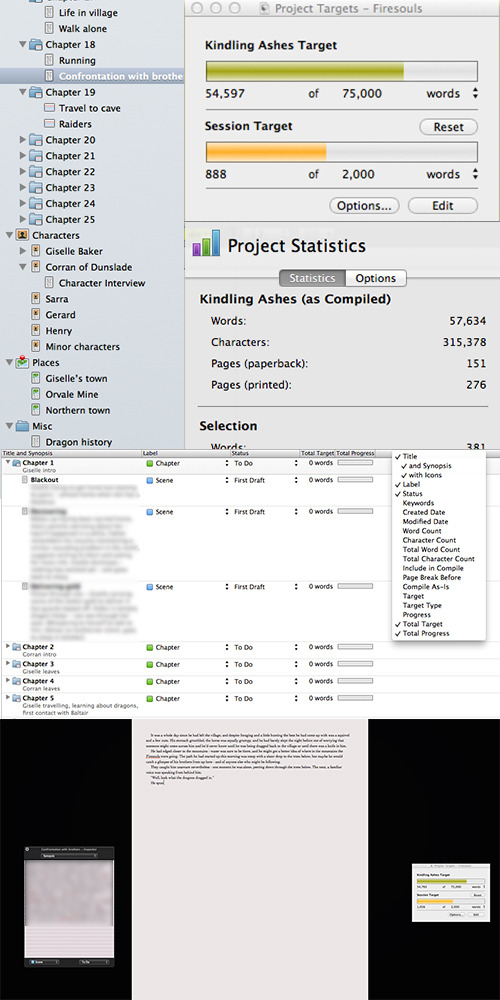
My favourite things about Scrivener
1. Navigation. You can see all your chapters, scenes, character & setting planning at one glance and switch between them very easily - compared to scrolling up and down in one long word processing document. Every file can also be a folder, so you can have collapsible items underneath it.
2. Word count targets. The “Project Targets” are particularly useful for NaNoWriMo so you don’t have to keep looking back at the website to see how you’re doing for the day, but more so outside of it, when you want to keep yourself working to a target but don’t have Nano’s charts and daily word counts. It also gives you a nice ding when you hit your session target.
3. How many pages? I only recently discovered this, but it’s very nice to be able to see in Project Statistics approximately how big your manuscript would be in pages without worrying about formatting.
4. Outlining. Scrivener has two methods of outlining - one is Corkboard, which is exactly what it sounds like, a digital corkboard with notes pinned on it that represent your chapters/scenes with their summaries. The screenshot above is called ‘outliner’ and lists collapsible chapters/scenes with various statistics you can select as shown in the tick menu. Generally I prefer Corkboard, but Outliner is useful if you just want to see everything in a clear order.
5. Full screen. I get distracted very easily when writing, so the full-screen writing mode is wonderful for me to avoid that - but you can still choose certain windows from the normal Scrivener view to show up. I have my targets and my summary, so I can stick to my plan when I’m writing and also see what progress I’m making.
6. Notes. No screenshot, but it’s a simple post-it note style box to the side of every document (chapter, scene, character etc.) that allows you to add notes. This may sound very simple, but it’s far more useful than I’d expected. During NaNoWriMo when I’m not meant to be editing at all, but I know something needs fixing, I will jot down something in the side like ‘Take out the horse’ so that when I go through again to edit I know exactly the things to focus on immediately but which would have taken too much time before. It’s linked to the scene so I don’t just have a pile of notes in one document at the end and then have to work out where it needs fixing.
Overall
I downloaded Scrivener for the first time two years ago, and now I can’t imagine working without it. It’s so nice to have the planning and the writing all combined into one place where I can easily switch between the two. I haven’t yet got as far in a novel created in Scrivener to use the compile features so I can’t comment on those, but so far all my experiences of it have been good.
One thing to note is that if transferring project between a Windows and a Mac version of Scrivener, it’s generally best to zip the file first.
[Screenshots from my current novel Kindling Ashes using the Mac version of Scrivener - some features may not be available in Windows yet.]
27K notes
·
View notes
Text
Writing Tip June 4th
A list of body language phrases.
I’ve included a very comprehensive list, organized by the type of body movement, hand and arm movements, facial expressions etc. In some cases, a phrase fits more than one heading, so it may appear twice. Possible emotions are given after each BL phrase unless the emotion is indicated within the phrase. (They are underlined for emphasis, not due to a hyperlink.)
Note: I’ve included a few body postures and body conditions as they are non-verbal testimony to the character’s physical condition.
Have fun and generate your own ideas.:-)
Eyes, Brows and Forehead
arched a sly brow: sly, haughty
blinked owlishly: just waking, focusing, needs glasses
brows bumped together in a scowl: worried, disapproving, irritated
brows knitted in a frown: worried, disapproval, thoughtful
bug-eyed: surprised, fear, horror
cocky wink and confident smile: over confidence, arrogant, good humor, sexy humor
eyes burned with hatred: besides hatred this might suggest maniacal feelings
eyes flashed: fury, defiance, lust, promise, seduction
eyes rolled skyward: disbelief, distrust, humor
forehead puckered: thoughtful, worried, irritation
frustration crinkled her eyes
gaze dipped to her décolletage: sexual interest, attraction, lust
gimlet-eyed/narrowed eyes: irritation, thoughtful, mean, angry
gleam of deviltry: humor, conniving, cunning
kept eye contact but her gaze became glazed: pretending interest where there is none/bordom
narrowed to crinkled slits: angry, distrust
nystagmic eyes missed nothing (constantly shifting eyes): Shifty
pupils dilated: interested, attraction to opposite sex, fear
raked her with freezing contempt
slammed his eyes shut: stunned, furious, pain
squinted in a furtive manner: fearful, sneaky
stared with cow eyes: surprised, disbelief, hopeful, lovestruck
subtle wink: sexy, humor/sharing a joke, sarcasm
unrelenting stare: distrust, demanding, high interest, unyielding
Place To Place, Stationary Or Posture
ambled away: relaxed, lazy
barged ahead: rude, hurried
battled his way through the melee: desperate, anger, alarm
cruised into the diner: easy-going, feeling dapper, confident
dawdled alongside the road: lazy, deliberate delay for motives, unhurried, relaxed
dragged his blanket in the dirt: sadness/depressed, weary
edged closer to him: sneaky, seeking comfort, seeking protection, seeking an audience
he stood straighter and straightened his tie: sudden interest, sexual attraction
held his crotch and danced a frantic jig: demonstrates physical condition – he has to pee
hips rolled and undulated: sexy walk, exaggerating for sex appeal
hovered over them with malice/like a threatening storm: here it’s malice, but one may hover for many reasons.
hunched over to look shorter: appear inconspicuous, ashamed of actions, ashamed of height
leaped into action feet hammering the marbled floor: eager, fear, joyous
long-legged strides: hurried, impatient
lumbered across: heavy steps of a big man in a hurry
minced her way up to him: timid, sneaky, insecure, dainty or pretense at dainty
paced/prowled the halls: worried, worried impatience, impatient, diligently seeking pivoted on his heel and took off: mistaken and changes direction, following orders, hurried, abrupt change of mind, angry retreat
plodded down the road: unhurried, burdened, reluctant
practiced sensual stroll: sexy, showing off
rammed her bare foot into her jeans: angry, rushed
rocked back and forth on his heels: thoughtful, impatiently waiting
sagged against the wall: exhausted, disappointment
sallied forth: confident, determined
sashayed her cute little fanny: confident, determined, angered and determined
shrank into the angry crowd: fear, insecure, seeking to elude
sketched a brief bow and assumed a regal pose: confident, mocking, snooty, arrogant skidded to an abrupt halt: change of heart, fear, surprise, shock
skulked on the edges of the crowd: sneaky, ashamed, timid
slithered through the door: sneaky, evil, bad intentions
stormed toward her, pulling up short when: anger with a sudden surprise
swaggered into the class room: over confident, proud, arrogant, conceited
tall erect posture: confidence, military bearing
toe tapped a staccato rhythm: impatience, irritation
tottered/staggered unsteadily then keeled over: drunk, drugged, aged, ill
waltzed across the floor: happy, blissful, exuberant, conceited, arrogant
Head Movement
cocked his head: curiosity, smart-alecky, wondering, thoughtful
cocked his head left and rolled his eyes to right corner of the ceiling: introspection
droop of his head: depressed, downcast, hiding true feelings
nodded vigorously: eager
tilted her head to one side while listening: extreme interest, possibly sexual interest
Mouth And Jaw
a lackluster smile: feigning cheerfulness
cigarette hung immobile in mouth: shock, lazy, uncaring, relaxed casualness
clinched his jaw at the sight: angered, worried, surprised
curled her lips with icy contempt
expelled her breath in a whose: relief, disappointment
gagged at the smell: disgust, distaste
gapped mouth stare: surprised, shock, disbelief
gritted his teeth: anger, irritation, holding back opinion
inhaled a sharp breath: surprise, shock, fear, horror
licked her lips: nervous, sexual attraction
lips primed: affronted, upset, insulted
lips pursed for a juicy kiss
lips pursed like she’d been chewing a lemon rind: dislike, angry, irritated, sarcasm
lips screwed into: irritation, anger, grimace, scorn
lips set in a grim line: sorrow, worried, fear of the worst
pursed her lips: perturbed, waiting for a kiss
scarfed down the last biscuit: physical hunger, greed
slack-mouthed: total shock, disbelief
slow and sexy smile: attraction, seductive, coy
smacked his lips: anticipation
smile congealed then melted into horror
smile dangled on the corner of his lips: cocky, sexy
smirked and tossed her hair over her shoulder: conceit, sarcasm, over confident
sneered and flicked lint off his suit: sarcasm, conceit
spewed water and spit: shock
stuck out her tongue: humor, sarcasm, teasing, childish
toothy smile: eagerness, hopeful
wary smile surfaced on her lips
Nose
nose wrinkled in distaste/at the aroma
nostrils flared: anger, sexual attraction
nose in the air: snooty, haughty
Face in General
crimson with fury
handed it over shame-faced
jutted his chin: confident, anger, forceful
managed a deadpan expression: expressionless
muscles in her face tightened: unsmiling, concealing emotions, anger, worried
rested his chin in his palm and looked thoughtful
rubbed a hand over his dark stubble: thoughtful, ashamed of his appearance
screwed up her face: anger, smiling, ready to cry, could almost be any emotion
sneered and flicked lint off his suit: conceit, derision, scorn
Arm and Hand
a vicious yank
arm curled around her waist, tugging her next to him: possessive, pride, protective
bit her lip and glanced away: shy, ashamed, insecure
brandished his fist: anger, threatening, ready to fight, confident, show of pride
clamped his fingers into tender flesh: anger, protective, wants to inflict pain
clenched his dirty little fists: stubborn, angry
clapped her hands on her hips, arms crooked like sugar bowel handles: anger, demanding, disbelief
constantly twirled her hair and tucked it behind her ear: attracted to the opposite sex, shy crossed his arms over his chest: waiting, impatient, putting a barrier
crushed the paper in his fist: anger, surrender, discard
dived into the food: hunger, eager, greedy
doffed his hat: polite gesture, mocking, teasing
doodled on the phone pad and tapped the air with her foot: bored, inattention, introspection
drummed her fingers on the desk: impatient, frustrated, bored
fanned her heated face with her hands: physically hot, embarrassed, indicating attraction
fiddled with his keys: nervous, bored
firm, palm to palm hand shake: confident, honest
flipped him the bird: sarcastic discard
forked his fingers through his hair for the third time: disquiet/consternation, worry, thoughtful
handed it over shame-faced: guilt, shame
held his crotch and danced a frantic jig: physical need to relieve himself
limp hand shake: lack of confidence, lack of enthusiasm
propped his elbow on his knee: relaxed, thoughtful
punched her pillow: restless, can’t sleep, angry
rested his chin in his palm: thoughful, worried
scratched his hairy belly and yawned: indolent, bored, lazy, relaxed, just waking
shoulders lifted in a shrug: doubtful, careless discard
slapped his face in front of God and country: enraged, affronted/insulted
snapped a sharp salute: respect, sarcastic gesture meaning the opposite of respect
snapped his fingers, expecting service: arrogant, lack of respect, self-centered
sneered and flicked lint off his suit
spread her arms wide: welcoming, joy, love
stabbed at the food: anger, hunger, determined
stood straighter and smoothed his tie: sudden interest, possible sexual interest
stuffed his hands in his pockets: self-conscious, throwing up a barrier
sweaty handshake: nervous, fearful
touched his arm several times while explaining: sign of attraction, flattery, possessive
wide sweep of his arms: welcoming, all inclusive gesture, horror
Sitting or Rising
collapsed in a stupor: exhausted, drunk, drugged, disbelief
enthroned himself at the desk: conceit, pronouncing or taking ownership
exploded out of the chair: shock, eager, anger, supreme joy
roosted on the porch rail like a cock on a hen house roof: claiming ownership, conceit, content
sat, squaring an ankle over one knee: relaxed and open
slouched/wilted in a chair and paid languid attention to: drowsy, lazy, depressed, disinterest, sad, totally relaxed, disrespectful
squirmed in his chair: ill at ease, nervous, needs the bathroom
Recline
flung himself into the bed: sad, depressed, exhausted, happy
prostrated himself: surrender, desperate, miserable, powerless, obsequious, fawning, flattering
punched her pillow: can’t sleep, anger, frustrated
threw himself on the floor kicking and screaming: tantrum
Entire body and General
body stiffened at the remark: offended, anger, alerted
body swayed to music: dreamy, fond memories, enjoys the music
bounced in the car seat, pointing: excitement, fear, eager
cowered behind his brother: fear, shyness, coward, desperate
curled into a ball: sorrow, fear, sleepy, defensive
heart galloping: anxiety, joy, eager
held his crotch and danced a frantic jig
humped over his cane, each step shaking and careful: pain, aged
inhaled a deep breath and blew out slowly: buying time to find words/thoughtful, reconciled
quick and jerky like rusty cogs on a wheel: unsure of actions, self-conscious, tense, edgy
rocked back and forth on his heels: impatient, cocky, gleeful
manhandled the woman into a corner: bully, anger
slumped shoulders: defeat, depressed, sad, surrender
stiff-backed: priggish, haughty, affronted
stood straighter and straightened his tie: sexual interest, wants to make an impression
stooped and bent: aged, arthritic, in pain
stretched extravagantly and yawned: tired, bored, unconcerned
sweating uncontrollably: nervous, fear, guilt
tall erect posture: confidence, military bearing
was panting now at: afraid, exhausted, out of breath, sexual excitement
-Sharla Rae
73K notes
·
View notes
Text
Relevant Norwegian term of the day: Maktkåt.
Maktkåt is when a politician desperately seeks power and makes any decision to do so.
Literal meaning: Horny for power.
187 notes
·
View notes



